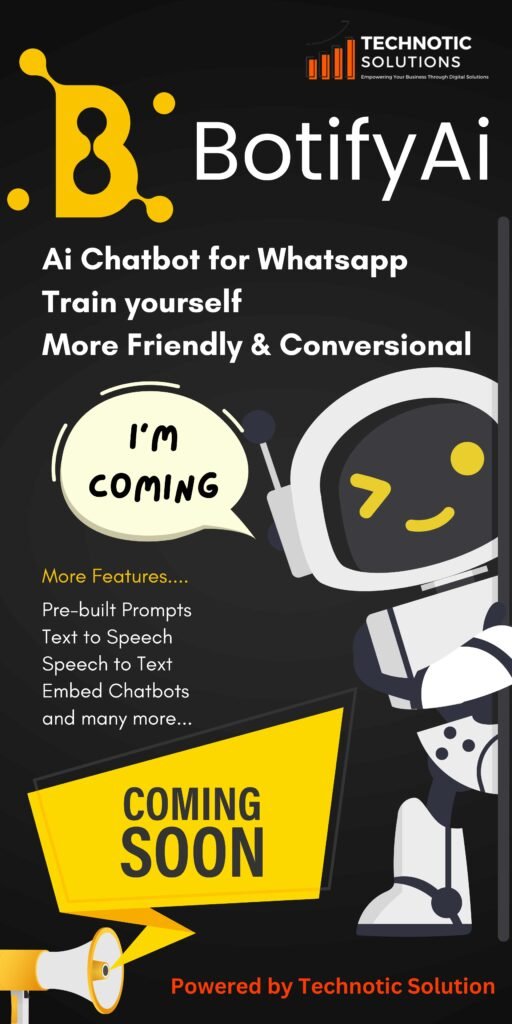Introduction
In the ever-evolving world of digital marketing, staying ahead of the curve is crucial. One of the most powerful tools that marketers have at their disposal today is Artificial Intelligence (AI). This technology is not only revolutionizing how marketing strategies are implemented but also reshaping the entire digital marketing landscape. From personalized content to predictive analytics, AI is the driving force behind more efficient, data-driven, and effective marketing campaigns.

Overview of AI in Digital Marketing
Artificial Intelligence refers to the simulation of human intelligence in machines that are programmed to think, learn, and make decisions. In the context of digital marketing, AI enables marketers to automate processes, analyze large sets of data, and make real-time decisions that enhance marketing outcomes. The integration of AI into digital marketing has led to smarter tools, better customer experiences, and improved return on investment (ROI).
Importance of AI in Modern Marketing Strategies
In the modern marketing landscape, AI is indispensable. It allows marketers to process massive amounts of data quickly, personalize customer experiences, and optimize marketing efforts with unprecedented precision. Whether it’s automating routine tasks, predicting future trends, or delivering personalized content, AI is central to staying competitive in today’s digital-first world.
The Role of AI in Data Analysis
AI-Powered Data Collection
Data is the backbone of digital marketing, and AI plays a crucial role in collecting and analyzing this data. AI-powered tools can gather data from various sources such as social media, websites, and customer interactions. This data is then processed to extract valuable insights that inform marketing strategies.
Understanding Customer Behavior Through AI
AI excels in analyzing customer behavior. By examining past interactions, purchase history, and online activity, AI can identify patterns and predict future behavior. This allows marketers to create targeted campaigns that resonate with individual customers, leading to higher engagement and conversion rates.
Predictive Analytics and Future Trends
Predictive analytics is one of the most powerful applications of AI in digital marketing. By analyzing historical data, AI can predict future trends and customer behaviors. This allows businesses to stay ahead of the curve, adapting their strategies to meet emerging trends and customer needs before they fully materialize.
Personalization in Digital Marketing with AI
AI-Driven Content Personalization
One of the key benefits of AI in digital marketing is its ability to personalize content. AI algorithms can analyze user data to deliver content that is tailored to the individual’s preferences, interests, and behavior. This level of personalization enhances the user experience, leading to higher engagement and loyalty.
Tailoring User Experience with AI
Beyond content, AI can also tailor the overall user experience. From personalized product recommendations to customized email campaigns, AI ensures that every interaction with the brand is relevant and engaging. This not only improves customer satisfaction but also drives conversions and sales.
Case Studies of Successful AI Personalization
Several companies have successfully implemented AI-driven personalization strategies. For instance, Netflix uses AI to recommend shows and movies based on viewing history, while Amazon’s AI-powered recommendation engine drives a significant portion of its sales. These examples highlight how AI can enhance personalization, leading to increased customer satisfaction and revenue.
AI in Customer Relationship Management (CRM)
Chatbots and AI-Powered Customer Support
AI is transforming customer support through chatbots and virtual assistants. These AI-powered tools can handle a wide range of customer inquiries, providing instant responses and solutions. This not only improves customer satisfaction but also frees up human agents to focus on more complex tasks.
Enhancing Customer Engagement with AI
AI-driven CRM systems can analyze customer interactions across multiple channels, providing insights that help marketers engage customers more effectively. By understanding customer preferences and behaviors, AI can guide personalized outreach efforts that build stronger relationships and foster loyalty.
AI in Email Marketing
Email marketing is another area where AI is making a significant impact. AI algorithms can analyze user data to optimize email content, timing, and targeting. This leads to higher open rates, click-through rates, and ultimately, better ROI from email campaigns.
AI and Social Media Marketing
AI Tools for Social Media Management
Social media is a critical component of digital marketing, and AI is playing an increasingly important role in managing social media efforts. AI-powered tools can schedule posts, analyze performance, and even generate content, allowing marketers to maintain a consistent and effective social media presence.
Predicting Social Media Trends with AI
AI can also predict social media trends by analyzing vast amounts of data from various platforms. By identifying emerging trends early, marketers can adjust their strategies to capitalize on new opportunities and stay ahead of the competition.
Optimizing Ad Campaigns with AI
AI is revolutionizing how ad campaigns are optimized. By analyzing data in real-time, AI can automatically adjust ad placements, targeting, and bidding strategies to maximize ROI. This ensures that marketing budgets are spent efficiently and effectively.
AI in Content Creation and Optimization
AI for Generating Content Ideas
Coming up with fresh content ideas can be challenging, but AI is here to help. AI tools can analyze trending topics, customer queries, and competitors’ content to generate ideas for blog posts, videos, and social media updates. This ensures that your content remains relevant and engaging.
AI in SEO and Content Optimization
AI is also transforming SEO and content optimization. AI-powered tools can analyze search engine algorithms, identify keyword opportunities, and optimize content for better rankings. This leads to increased visibility and more organic traffic to your website.
Examples of AI-Generated Content
AI-generated content is becoming increasingly common, with tools like GPT-3 capable of writing articles, product descriptions, and even poetry. While human input is still necessary to refine the content, AI can significantly speed up the content creation process.
AI in Advertising
Programmatic Advertising Explained
Programmatic advertising is an automated process that uses AI to buy and place ads in real-time. This method allows for more precise targeting and optimization, ensuring that ads reach the right audience at the right time.
Benefits of AI in Targeted Advertising
AI enhances targeted advertising by analyzing user data to identify the most relevant audience segments. This leads to higher engagement rates and a better return on ad spend. Additionally, AI can optimize ad creatives and placements in real-time, further improving campaign performance.
Real-World Examples of AI in Advertising
Many companies are already leveraging AI in their advertising efforts. For example, Facebook’s ad platform uses AI to optimize ad delivery, while Google’s AI-driven search ads provide personalized results based on user intent. These examples demonstrate the power of AI in creating more effective and efficient advertising campaigns.
AI in Predictive Marketing
How AI Predicts Consumer Needs
AI’s ability to predict consumer needs is a game-changer in digital marketing. By analyzing past behavior and trends, AI can anticipate what customers are likely to want or need next. This allows marketers to create targeted campaigns that meet customer needs before they even arise.
AI-Driven Marketing Strategies
Predictive marketing strategies powered by AI can significantly improve marketing outcomes. By using AI to forecast trends, optimize targeting, and personalize content, marketers can increase engagement, conversions, and customer loyalty.
Case Studies of Predictive Marketing Success
Several companies have seen success with AI-driven predictive marketing. For instance, Starbucks uses AI to predict customer preferences and offer personalized recommendations, while Spotify’s AI-powered playlist suggestions keep users engaged and subscribed.
AI and Marketing Automation
Streamlining Marketing Processes with AI
AI is streamlining marketing processes by automating routine tasks such as email scheduling, social media posting, and lead nurturing. This allows marketers to focus on higher-level strategic activities, improving overall efficiency and effectiveness.
AI in Lead Generation
AI is revolutionizing lead generation by analyzing data to identify high-potential leads and automatically nurturing them through the sales funnel. This ensures that sales teams are focused on the most promising prospects, leading to higher conversion rates.
AI for Sales Forecasting
AI is also improving sales forecasting by analyzing historical data and predicting future sales trends. This allows businesses to make more informed decisions about inventory, staffing, and marketing budgets, leading to better overall performance.
Challenges and Ethical Considerations of AI in Marketing
Addressing Privacy Concerns
While AI offers many benefits, it also raises concerns about privacy. Marketers must ensure that they are collecting and using customer data ethically and transparently. This includes obtaining proper consent and protecting data from breaches.
Ensuring Transparency in AI Algorithms
Transparency in AI algorithms is crucial for building trust with customers. Marketers must be able to explain how AI is used in their campaigns and ensure that the algorithms are fair and unbiased.
Balancing Automation with Human Touch
While AI can automate many marketing tasks, it’s important to maintain a human touch. Customers still value personalized interactions and human empathy, so marketers must strike a balance between automation and genuine human engagement.
Conclusion
The Future of AI in Digital Marketing
The future of digital marketing is undoubtedly intertwined with AI. As AI technology continues to advance, it will unlock even more opportunities for marketers to create personalized, data-driven, and effective campaigns. Embracing AI now will be key to staying competitive in the ever-changing digital landscape.
Final Thoughts on AI’s Impact on Marketing
AI is not just a buzzword; it’s a transformative force that is reshaping the way marketers connect with customers. By leveraging AI, businesses can gain deeper insights, optimize their efforts, and ultimately drive better results. As we move forward, the integration of AI into digital marketing will continue to evolve, offering new possibilities and challenges.
FAQs
How does AI enhance customer targeting in digital marketing?
AI enhances customer targeting by analyzing vast amounts of data to identify patterns and preferences. This allows marketers to create highly targeted campaigns that resonate with specific audience segments.
What are the limitations of AI in digital marketing?
While AI is powerful, it has limitations, such as the need for large datasets, potential biases in algorithms, and the lack of human creativity. It’s important to use AI as a tool, not a replacement for human judgment.
How can small businesses leverage AI in their marketing strategies?
Small businesses can leverage AI by using affordable AI-powered tools for tasks like content creation, social media management, and email marketing. These tools can help level the playing field by enabling small businesses to compete with larger companies.
Is AI-driven marketing expensive to implement?
The cost of implementing AI-driven marketing varies depending on the tools and technologies used. While some advanced AI solutions can be costly, there are also many affordable options available for businesses of all sizes.
What are the ethical concerns surrounding AI in digital marketing?
Ethical concerns include data privacy, algorithmic bias, and the potential for AI to replace human jobs. It’s important for marketers to address these concerns by being transparent, ethical, and mindful of the impact of AI on society.






